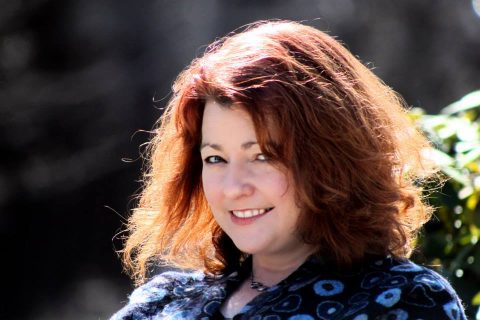What do you think makes a good story? What could a writer do to make you keep reading? What is something that might make you stop reading?
A good story is one in which something happens that matters, and the writer’s mastery of craft keeps me reading to find out what happens and why I should care. I will keep reading work when the author obviously has a deep love and respect for words. Words are a writer’s artistic medium, and too many prose writers treat language as a vehicle for plot or Big Ideas, forgetting that we are literally putting one word in front of the other. Now I’ve got that song from the claymation movie “Santa Claus is Coming to Town” stuck in my head—you know, the one about putting one foot in front of the other. But that’s what we do, and which word you place where can change everything. Show me you love words like they’re living things, and I’ll keep reading. But I stop at obvious clichés in language or plot because it indicates carelessness or a story still in draft form.
What kind of story would you love to see in the queue this week? Are there certain themes or styles you’re particularly drawn to?
I’d love to see a vivid, energetic story with a little emotional punch that stirs my mind, a story that I keep thinking about much later. Both Jesse Lee Kercheval’s “Carpathia” and Anna Lea Jancewicz’s “Marriage” had that effect on me. Humor, which is so hard to pull off, delights me too. I’m trying to actively look outside of themes I’m always drawn to, e.g. redemption, and I’m impressed by non-linear stories that somehow pull together by the end. So, I guess I’m looking for a funny, anti-redemptive, fragmented story that leaves a lasting impression. That’s all. Seriously, surprise me.
You write both fiction and creative nonfiction. Can you talk a little about how you move between both genres? Do you have a favorite?
Like I tell my children, I don’t have a favorite, but I do love them in different ways: the sensitive kid pulls a protective, empathizing, “curl into the us-ness of us” love from me, and the funny, devil-may-care kid sparks this more joyful, expansive love. And I can’t imagine life without them both. I feel that way about the genres of fiction and nonfiction: they use a lot of the same skills, but they pull different things from me. There is something humbling and challenging about trying to wrangle a greater truth from details that are factual, and I also enjoy shaping and discovering new truths in that jumble of invention and experience from which fiction writers work.
I think I move between those genres more slowly than I used to. I just completed a big nonfiction project, another version of it anyway. Too much introspection, and I’m ready to start making things up again. Eventually I’ll think “hey, the narrator in my head who’s closest to being me has something to say,” and I’ll swing back to nonfiction.
You teach creative writing at Indiana University of Pennsylvania. How does your teaching inform your writing? And/or how does your writing inform your teaching?
I think you really learn a craft when you try to teach someone else. I remember teaching my first fiction writing class. I was a graduate student and a lifelong reader, so I’d internalized a lot of writing moves to where I didn’t consciously know how I was building suspense or revealing character through dialogue. When I had to help students see why their stories were falling flat, I paid closer attention to all the elements of fiction. I became a better reader of the stories I assigned and the student stories I workshopped, and my own writing expanded in new directions. In turn, I share with students how my editor self makes decisions when revising current drafts and why, and that reminds all of us how writing is a craft you hone throughout your life as long as you remain open to learning.


 A SmokeLong Summer 24!
A SmokeLong Summer 24!